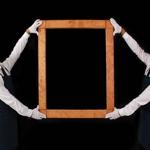
Autre Ne Veut Anxiety
(Mexican Summer)
There is a recent trend in music writing of elevating a recent surge in popularity of R’n’B to a new wave of creativity in the genre. Recently, Solange Knowles astutely pointed out the problems with the way recent R’n’B has been discussed without a thorough knowledge of the ins-and-outs of the genre. This shouldn’t be to say that artists like The Weeknd, Frank Ocean, How to Dress Well, Miguel, and indeed Solange herself, aren’t brilliantly innovative artists, but perhaps that the recent shift in the way R’n’B is being discussed is more to do with audience than a sudden insurgence of innovation within the genre. Accordingly, I don’t want to suggest that Autre Ne Veut is breaking new ground, but to recognise my limitations in placing him in any sort of “movement”. Either way, his angle on R’n’B (and a healthy dose of 80s synthpop) is distinctive, and emotional to the point of excess, even purposeful embarrassment.
The other thing he might be accused of is appropriation – Arthur Ashin is certainly conscious of the cultural and racial implications of the genre touchstones in his music, but he’s used the term “failure pop” to describe the way he’s using chart music (especially R’n’B) as something he knows little about technically, but inhabits wholeheartedly. These genres seem to have played a big role in soundtracking his life - I’m guessing the music you listened to when you had your first teenage sexual awakenings wasn’t the same music you listen to now, and I sense that those experiential connections are what Autre Ne Veut is digging into. Beyond that, the sonic richness and sensuality of R’n’B are fertile ground for the sexual explorations in Autre Ne Veut’s music.
This effect of inhabiting pop music was more pronounced on his debut - it was an incompetent but compelling mess, held together, despite amateurish lo-fi production, purely by the pathos felt in Ashin’s falsettos, wailed as if into a hairbrush on his bedroom floor. Few performers dare to let themselves go as much as this. That feeling remains on Anxiety, but it’s backed up by a much more developed, confident production style, easing the discomfort considerably. Opener Play By Play shows off a tour-de-force of inherited production flair, with some real soul power backing him up for its ever-swelling finale.
Generally, the songs aren’t really about anything. They simply convey that embarrassed self-expression, always vaguely directed towards a nonspecific second-person – the content is that disconnection rather than any specific situations. Which makes the exception to the rule a clear standout – Counting is about the narrator’s fear of his grandmother’s death, that the next time he calls her will be the last. There’s an arpeggiated melody in the verse like a flurry of panic, and free-jazz sax skronks wrenching him into each chorus – it’s the most mature track on the record, the most three-dimensional in its content and modes of expression. On the other hand, Gonna Die is unabashedly trite in its pseudo-existential crisis: Oh – someday I’m gonna die (you may feel your eyes roll as the beat drops out for a moment on the word “die”); And I feel it more acutely now / Than I have for a while. It’s so unoriginal, yet somehow I’m torn between hating it and admiring Autre Ne Veut’s barefaced honesty in conveying this completely universal feeling.
The highlights are somewhat front-loaded; Autre Ne Veut’s schtick begins to wear by the end, and it’s hard to judge the songs outside of Ashin’s performativity. But you don’t need to suspend belief to imagine a track like I Wanna Dance With Somebody (which isn’t a cover) in the charts, given a thicker, wobblier bass drop and a neutered, placating singer. He definitely has an ear for melody, especially on the 80s-camp dual-guitar solo line of Don’t Ever Look Back – but it’s never exactly catchy.
I’ve used the word “embarrassment” because you can see yourself in the record’s narrator; you can empathise with the despair he conveys, as if he’s falsettoing because he can’t complete the catharsis you sense in his hysteric delivery. He makes spine-tingling use of that negative space between intangible emotion and pop music, highlighting all those contradictions. Autre Ne Veut’s triteness, his overexpression, are the result of a failure to not just create popular music, but to express himself too – and that’s the album’s main “Anxiety”.
5 March, 2013 - 04:22 — Stephen Wragg